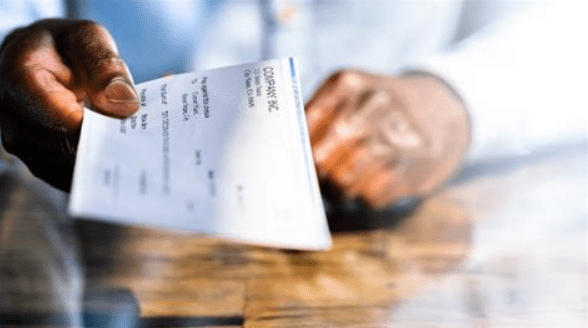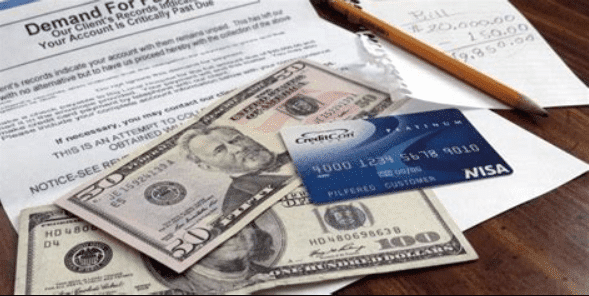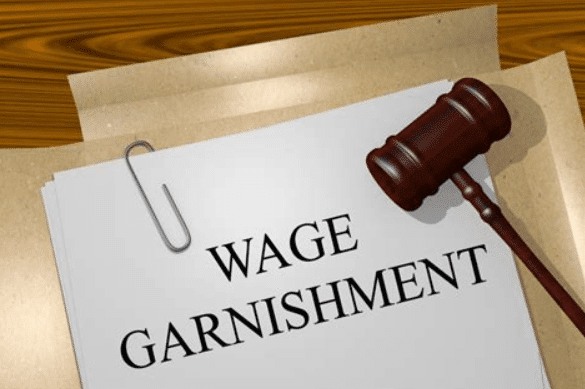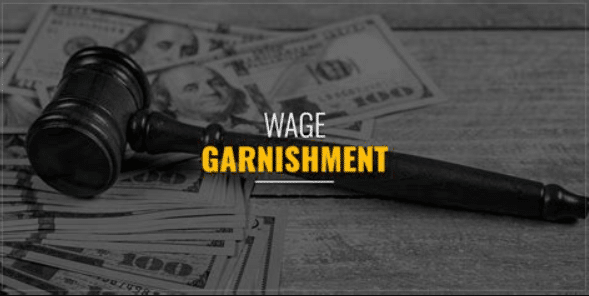Wage garnishment, a process where a portion of your weekly earnings is withheld by your employer to settle a debt, typically indicates outstanding debt obligations. Utilizing services like ZumaZip Settle can help resolve debts preemptively, thus averting potential legal judgments and subsequent wage garnishments.
Initially, when obtaining a loan or credit card, one typically anticipates timely repayment through regular monthly installments, enjoying the benefits of available funds for essential purchases.
However, unforeseen circumstances such as job loss, reduced income, or significant medical expenses can disrupt repayment plans. Despite the creditor’s persistence, threatening legal action, including debt lawsuits, may ensue to secure a judgment for potential wage garnishment.
Wage garnishment can significantly disrupt financial stability, impacting essential payments like rent or vehicle expenses and potentially straining familial financial support obligations.
Is a creditor suing you for an unpaid debt? ZumaZip Settle can help you negotiate a debt settlement.
Federal laws for wage garnishment are strict
Federal regulations establish specific wage garnishment limitations. Under 15 USC § 1671, a creditor may garnish your wages for the lesser of two amounts:
- 25% of your disposable earnings.
- The amount your disposable earnings exceed 30 times the federal minimum wage, which is currently $7.25 per hour.
Disposable earnings encompass your income after mandatory legal deductions, including federal, state, and Social Security taxes. Additionally, deductions for non-compulsory expenses such as health and life insurance premiums, union dues, and charitable contributions are considered part of your disposable earnings. These are the funds available for allocation towards other financial obligations or discretionary spending after essential deductions have been accounted for.
Let’s consider an example.
Example: Bryan has an outstanding balance on his Chase credit card of $3,000. He stopped making payments on the credit card when his income took a nosedive, and now Chase is suing him for the debt. Bryan doesn’t try to resolve the debt before his court date, and Chase wins its lawsuit against him. Now, Chase wants to garnish Bryan’s wages. Travis currently earns $1,000 weekly after taxes as a taxi driver. Under federal law, Chase can garnish 25% of Bryan’s earnings, or $250 weekly, until Bryan fully satisfies the debt. It is the lesser of the two options since $1,000 – (30 x $7.25) equals $782.50. In this example, Bryan will pay $1,000 monthly from his earnings to Chase until he pays off the $3,000 debt. That huge chunk of income will make it much harder for Bryan to afford his other obligations.
It is noteworthy that states possess autonomy in establishing wage garnishment thresholds, provided they do not surpass federal stipulations. Certain states enact more lenient policies regarding wage garnishment, permitting debtors to preserve a greater portion of their earnings or safeguarding specific income sources from creditor claims.
Moreover, federal statutes safeguard debtors from wrongful termination by employers on grounds of wage garnishment. As per 15 USC § 1671, employers are prohibited from terminating an employee solely due to a singular instance of wage garnishment. However, no such protection extends to debtors facing subsequent garnishments, leaving them vulnerable to termination at the employer’s discretion.
You can avoid wage garnishment if you take the right actions
Wage garnishment by a creditor hinges on the outcome of a debt lawsuit, wherein the creditor must prevail to initiate such actions. Prompt response becomes paramount upon being sued, as swift resolution prior to court proceedings can be pivotal.
Full repayment of the debt effectively precludes any lawsuit, eliminating grounds for legal action by the creditor and alleviating concerns regarding wage garnishment.
Should complete repayment before the court date prove unfeasible, negotiation of a debt settlement presents an alternative recourse. This entails offering a lump-sum payment in exchange for partial debt forgiveness, thereby releasing the debtor from the remaining obligation.
Don’t allow creditors to garnish your wages
To safeguard against wage garnishment, it is imperative to take proactive steps to protect your interests. It is unwise to disregard a debt lawsuit; instead, endeavor to address the debt prior to your scheduled court appearance. By doing so, you can mitigate the risk of adverse outcomes such as a court judgment or wage garnishment.
Is a creditor making your life miserable with a debt lawsuit? ZumaZip Settle can help you settle your debt now, before it’s too late.
What is ZumaZip?
ZumaZip is a convenient solution designed to streamline your response to a debt collection lawsuit. Here’s a breakdown of what you can expect when you use ZumaZip:
Firstly, you’ll access our user-friendly web application, which guides you through the process step by step. You’ll be prompted to answer a series of questions related to your specific situation. Once you’ve completed the questionnaire, you have the option to either print out the finalized forms and mail them to the appropriate courts yourself, or you can opt to utilize ZumaZip’s services to file them on your behalf. Additionally, if you choose this option, an attorney will review your document for added peace of mind.
If you’re seeking guidance on how to effectively respond to a debt collection lawsuit, ZumaZip can provide the assistance you need. Feel free to explore our FAQs for more information on what ZumaZip has to offer.
What if I haven’t been sued yet?
If you’ve only received a collections notice, but not a lawsuit, the best way to respond is with a Debt Validation Letter. When a debt collector contacts you in any way, whether it’s by phone or mail, you can respond by formally requesting a debt validation with a Debt Validation Letter . This letter notifies the collector that you dispute the debt and forces them to provide proof you owe the debt. They can’t call you or continue collecting until they provide validation of the debt. This flowchart shows how you can use a Debt Validation Letter to win.
Get started with a Debt Validation Letter here.
How to Answer a Summons for debt collection in all 50 states
Here’s a list of guides on how to respond to a debt collection lawsuit in each state:
- Alabama
- Alaska
- Arizona
- Arkansas
- California
- Colorado
- Connecticut
- Delaware
- Florida
- Georgia
- Hawaii
- Idaho
- Illinois
- Indiana
- Iowa
- Kansas
- Kentucky
- Louisiana
- Maine
- Maryland
- Massachusetts
- Michigan
- Minnesota
- Mississippi
- Missouri
- Montana
- Nebraska
- Nevada
- New Hampshire
- New Jersey
- New Mexico
- New York
- North Carolina
- North Dakota
- Ohio
- Oklahoma
- Oregon
- Pennsylvania
- Rhode Island
- South Carolina
- South Dakota
- Tennessee
- Texas
- Utah
- Vermont; Vermont (Small Claims court)
- Virginia
- Washington
- West Virginia
- Wisconsin
- Wyoming
Guides on how to beat every debt collector
Hey there! Facing off against a debt collector can feel like a daunting challenge, but fear not! We’re here to help you navigate through it all with our handy guides designed to assist you in beating every debt collector you encounter. Whether you’re facing a new lawsuit or dealing with a persistent collector, we’ve got your back. Stay positive, stay informed, and let’s tackle this together!
- Absolute Resolutions Investments LLC
- Accredited Collection Services
- Alliance One
- Amcol Clmbia
- American Recovery Service
- Asset Acceptance LLC
- Asset Recovery Solutions
- Associated Credit Services
- Autovest LLC
- Cach LLC
- Cavalry SPV I LLC
- Cerastes LLC
- Colinfobur
- Covington Credit
- Crown Asset Management
- CTC Debt Collector
- Cypress Financial Recoveries
- Delanor Kemper & Associates
- Eagle Loan of Ohio
- Educap
- Estate Information Services
- FIA Card Services
- Forster & Garbus
- Freshview Solutions
- Fulton Friedman & Gullace LLP
- Harvest Credit Management
- Howard Lee Schiff
- Hudson & Keyse LLC
- Integras Capital Recovery LLC
- Javitch Block
- Jefferson Capital Systems LLC
- LVNV Funding
- Mannbracken
- Mariner Finance
- Medicredit
- Michael J Adams PC
- Michael J Scott
- Midland Funding LLC
- Mullooly, Jeffrey, Rooney & Flynn
- Mountain Land Collections
- MRS Associates
- National Collegiate Trust
- Nationstar Foreclosure
- Northstar Capital Acquisition
- NCEP LLC
- NRC Collection Agency
- OneMain Financial
- Palisades Collection LLC
- Pallida LLC
- Paragon Revenue Group
- Pinnacle Collections Agency
- PMAB LLC
- Portfolio Recovery Associates
- Provest Law
- PYOD LLC
- Reunion Student Loan Finance Corporation
- Revenue Group
- Regents and Associates
- RSIEH
- Salander Enterprises LLC
- Second Round Sub LLC
- Security Credit Services
- Sherman Financial Group
- Suttell and Hammer
- T-Mobile
- Transworld Systems
- Tulsa Teachers Credit Union
- UCB Collection
- Velo Law Office
- Velocity Investments
- Waypoint Resource Group
- Weinberg and Associates
- Wolpoff & Abramson
Settle your medical debt
Having a health challenge is stressful, but dealing medical debt on top of it is overwhelming. Here are some resources on how to manage medical debt.
- Am I Responsible for My Spouse’s Medical Debt?
- Do I Need a Lawyer for Medical Bills?
- Do I Need a Lawyer to Fight Medical Bill Debt?
- Does Bankruptcy Clear Medical Debt?
- How Much Do Collection Agencies Pay for Medical Debt?
- How to Find Medical Debt Forgiveness Programs
- Is There a Statute of Limitations on Medical Bills?
- Medical Debt Statute of Limitations by State
- Summoned to Court for Medical Bills — What Do I Do?
- Summoned to Court for Medical Bills? What to Do Next
Stop calls from Debt Collectors
Do you keep getting calls from an unknown number, only to realize that it’s a debt collector on the other line? If you’ve been called by any of the following numbers, chances are you have collectors coming after you, and we’ll tell you how to stop them.
- 800-390-7584
- 800-289-8004
- 800-955-6600
- 877-366-0169
- 877-591-0747
- 800-278-2420
- 800-604-0064
- 800-846-6406
- 877-317-0948
- 888-899-4332
- 888-912-7925
- 202-367-9070
- 502-267-7522
Other wage garnishment resources
- Bank Account Garnishment and Liens in Texas
- Can I Stop Wage Garnishment?
- Can My Wife’s Bank Account Be Garnished for My Debt?
- Can Payday Loans Garnish Your Wages?
- Can pensions be garnished?
- Can Private Disability Payments Be Garnished?
- Can Social Security Disability Be Garnished?
- Can They Garnish Your Wages for Credit Card Debt?
- Can You Stop a Garnishment Once It Starts?
- Guide to Garnishment Limits by State
- How Can I Stop Wage Garnishments Immediately?
- How Long Before a Creditor Can Garnish Wages?
- How Long Does It Take to Get Garnished Wages Back?
- How to Fight a Wage Garnishment
- How to Prevent Wage Garnishment
- How to Stop a Garnishment
- How to Stop Social Security Wage Garnishment
- How to Stop Wage Garnishment — Everything You Need to Know
- New York Garnishment Laws – Overview
- Ohio Garnishment Laws — What They Say
- Wage Garnishment Lawyer
- What Is Wage Garnishment?



































